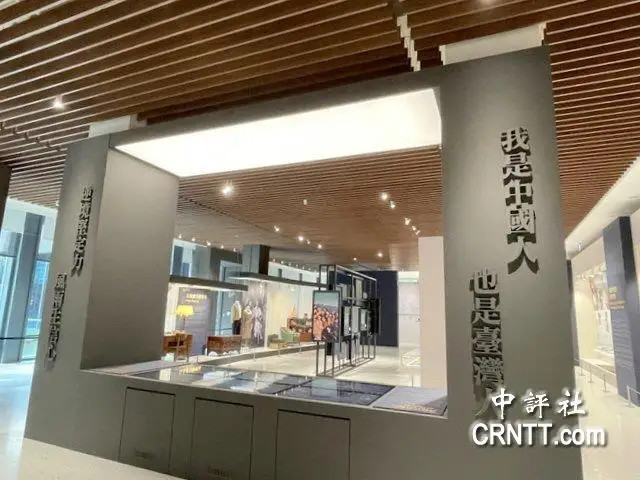Source: Taiwan Straits Network

The DPP authorities have suddenly changed their view of Chiang Ching-kuo's history, and recently paid high-profile remembrance of Chiang Ching-kuo, which is very different from the Green Camp's previous setting of Chiang Kai-shek as the "culprit of the white terror and murder, and wants to abolish the "Chiang Kai-shek Memorial Hall," demolish the bronze statue, and change the entire "Zhongzheng Road" in Taiwan. Tsai Ing-wen is now in power, and the line she pushed has not been dissented within the party, but Chiang Ching-kuo's most important historical position in Taiwan is not only the great construction, but also includes chiang's father and son who have always adhered to the one-China policy. Does Cai's honor jiang ching-kuo have any other extraneous sounds?
January 13 this year marks the 34th anniversary of Chiang Ching-kuo's death, and in addition to the tombs and commemorations of key KMT members, the DPP authorities also held a series of commemorative activities for the first time, including concerts on the same day, as well as the publication of Chiang Ching-kuo's database on 19 January. The "National History Museum" is an organ under the jurisdiction of the Cai Office, and the relevant theories have re-adjusted the Tsai authorities' view of Chiang Ching-kuo's history.
On the 22nd, Tsai Ing-wen personally attended the opening ceremony of the Seven Seas Cultural Park, the former residence of Chiang Ching-kuo, and shared the stage with Ma Ying-jeou, Lien Chan, Song Chuyu and others.
In contrast, the "Report on the Promotion of Tasks and Investigation Results" issued by the Executive Yuan's Promotion and Transfer Council last September pointed out that chiang kai-shek was the one who established the authoritarian system, and his son Chiang Ching-kuo also played an important role in the process, with cooperation in the past and succession in the future. Although Chiang Ching-kuo had fewer crackdowns during his tenure, there were many cases outside the trial due to stronger social control and tight surveillance. Including the Lin Yixiong House Blood Case, the Chen Wencheng Case, and the Jiangnan Case, which occurred during Chiang Ching-kuo's tenure, the past social cognition and the investigation and findings of the Association have all proved that they are involved with the intelligence organs.
The FACT that the DPP was able to form a party during Chiang Ching-kuo's presidency in 1986 has always been a mystery. Taiwan lifted the strict law in 1987, and with the tight control of the situation units during the martial law period over society, it is impossible not to know that the party outside the party wants to be founded, especially the big grin was elected to hold a congress at the Yuanshan Hotel. There have been oral histories of Chiang Kai-shek's guards who have pointed out that the DPP's formation of the party was led by Chiang Ching-kuo, and there is also a saying that Chiang Ching-kuo's conspiracy was planned. However, Tsai Ing-wen's 2022 change of the DPP's view of Chiang Ching-kuo's history, after all, 36 years after the DPP founded the party, Tsai should have other considerations. If it is a vote, how easy is it to win the support of Deep Blue just a few activities to commemorate Chiang Ching-kuo?
Whether Cai's zun Jiang Jingguo has other extraneous sounds is also a matter of curiosity from the outside world.
Tsai Ing-wen's previous terms, from chiang kai-shek to Lee Teng-hui, were all one-China policies. Chiang Ching-kuo's Seven Seas Apartment, where he lived before his death, opened for media interviews on the 19th, and one of the most striking points was that his famous words "I am a Chinese and a Taiwanese person are mentioned on the pillar of the entrance of the library." Chiang Kai-shek's father and son were defeated in the civil war, and in the early days of coming to Taiwan in 1949, they still actively "counterattacked the mainland" and always opposed "Taiwan independence." Even though Chiang Ching-kuo saw that the "counterattack on the mainland" was hopeless and began to develop a large-scale construction in Taiwan, he still firmly adhered to the one-China policy, claiming to be a Chinese never wavered.
The biggest gap between the DPP authorities and Chiang Ching-kuo lies in their positioning of Taiwan; the DPP is currently vigorously engaged in "one China, one Taiwan." Chiang Ching-kuo is one China, and the opposite is true.
Tsai Ing-wen's veneration of Chiang Ching-kuo has recently been criticized by some "pro-independence" figures, and this development is also foreseeable. After all, this gap is too big, from the Beautiful Island incident, which made the founding elder of the DPP have a heartache, to the stage of setting the tone and loosening the authority, all of which were during Chiang Ching-kuo's term of office; if this is political reconciliation, the "promotion of transfer" is still thinking of abolishing the "Chiang Kai-shek Memorial Hall." Isn't it inconsistent?